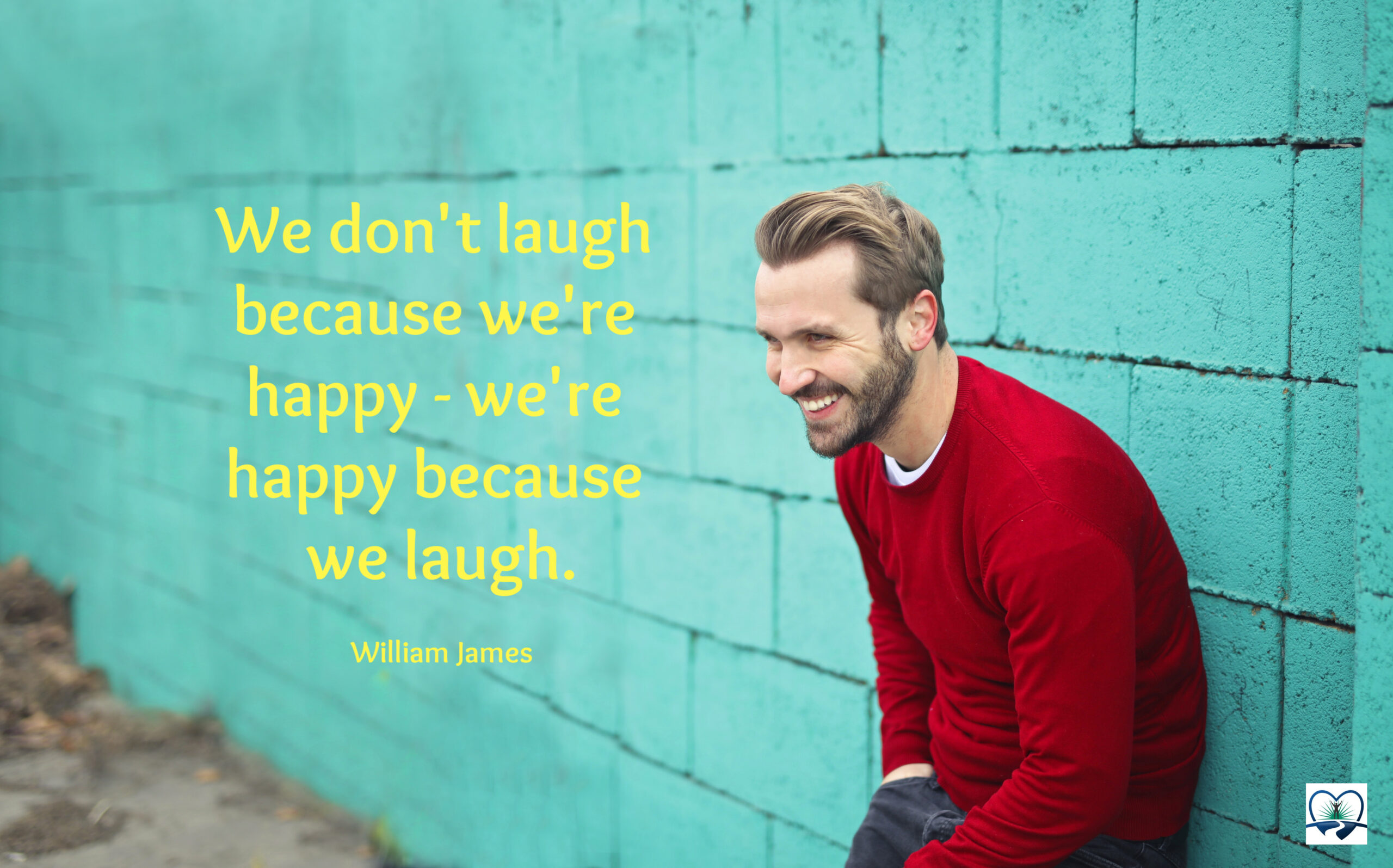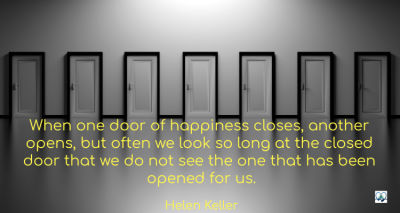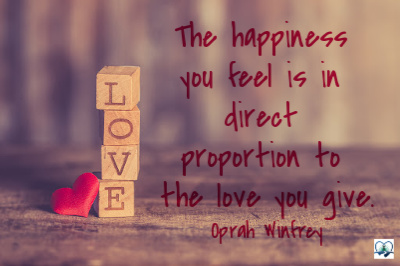Posts by Dr. Karen Finn
How Unrealistic Expectations In Marriage Can Lead To Divorce & What To Do About Them
You must be able to separate realistic from unrealistic expectations in marriage – if you want your marriage to last.
In 2005, the National Fatherhood Initiative published a report on a national survey they conducted on Marriage In America. One of their findings was that 45% of divorced respondents said that unrealistic expectations in marriage by them and/or their spouse was a major contributor to the end of their marriage. That’s nearly half of all divorces being caused in major part because of unrealistic expectations.
If you’re in an unhappy marriage and want to explore ways to improve your relationship, looking for and addressing unrealistic expectations might be a great place to start.
Where do expectations come from?
We all have expectations. We expect the sun to rise in the east and set in the west. We expect that our heart will pump without our conscious thought. We expect that we will outlive our children. And when we marry, we expect that we will be married for the rest of our lives.
Each of these expectations is based on our personal experience, understanding and/or hopes. They emerge from our beliefs about how the world works.
Beliefs and expectations can be rational or irrational. They can be based on facts. They can be based on decisions. They can be based on societal norms. They can also be based on misunderstandings.
The challenge is that we each tend to believe our beliefs and expectations are completely rational. Yet, the truth is that we all have irrational beliefs and expectations. They can just be really difficult to identify – especially when it comes to the expectations and beliefs we have about our spouses and marriages.
Examples of unrealistic expectations in marriage
We begin accumulating unhelpful beliefs and expectations about love and marriage from the moment we hear our first fairy tale. And society continues to pile them on through movies, books, quotes and, of course, societal norms.
Below are some of the most common unrealistic beliefs and expectations in marriage:
- Your spouse should complete you.
- Getting married is the hard part. Once you’re married, you’ll live happily ever after.
- Your spouse’s job is to make you a better or more evolved person.
- Your spouse will never change.
- You’ll be able to make your spouse change in the ways you want him/her to.
- Sex will always be fabulous because you love each other.
- Your spouse will give you whatever you want simply because s/he loves you.
- Your spouse’s life should revolve around you.
- Your spouse will be the only friend you need.
- Because you love each other, you’ll always be able to resolve all disputes.
- You should never go to bed angry.
- You should spend all your free time together – just like you did when you fell in love.
How unrealistic expectations can lead to divorce
When your expectations about who your spouse should be and how your marriage should be are unmet, of course you’ll feel disappointed. And your disappointment is signaling that something needs to change.
When expectations are realistic, it’s a fairly straightforward matter to talk with your spouse about how to address things in a way that you both can feel satisfied with.
The real challenge comes when we have unrealistic expectations in marriage that go unmet. That’s because unrealistic expectations can’t be met – no matter how much you demand or wish they are.
When we have unrealistic expectations in marriage (or anyplace else), we set ourselves up for more than just disappointment. Because it’s unlikely that our spouse will ever be able to meet them, our disappointment can fester and transform into other more defeating emotions and choices.
Persistent disappointment can lead to stress, frustration, anxiety, sadness, despair, anger, and eventually a decision to give up on the marriage. The choice to end things after persistent disappointment is often seen as the only answer because our unrealistic expectations can make it seem as if we fell for the wrong person.
The opportunity in unmet expectations
However, if you have unmet expectations, that doesn’t necessarily mean your expectations are unrealistic or unable to be met.
Begin exploring your expectations on your own. Look at the list above and see if you’re your expectations are similar to any of them. If they are, chances are you’re harboring some unrealistic expectations about yourself, your spouse or your relationship. And you have the opportunity to set more realistic expectations.
If, on the other hand, your unmet expectations don’t seem similar to those listed above, talk with your spouse about your expectations and hers/his. By doing so, you open the door to begin working together to resolve the issues.
We all have expectations about how things should be in our life – including our marriages. Sometimes our expectations are met and sometimes they’re not. And we feel disappointed when they’re not met regardless of whether our expectations are realistic or not.
Since unrealistic expectations in marriage are involved in nearly half of all divorces, if you’re struggling with an unhappy marriage, it’s time to evaluate your expectations and invite your spouse to do the same. It’s only by getting realistic about what you expect from each other that you’ll be able to address the disappointments before they fester.
I’m Dr. Karen Finn, a life and divorce coach who helps people, just like you, who are struggling with unmet expectations in marriage. You can join my newsletter list for free weekly advice. And if you’re interested in working with me personally, you can book an introductory 30-minute private coaching session with me.
Looking for more ideas for what to do about your unhappy marriage? You’ll find what you’re looking for in Unhappy Marriage.
The Realities Of Life After Divorce From A Narcissist
Life won’t necessarily be easy, but it can be better.
There was a time when even Aristotle believed that Earth was the center of the solar system. According to this geocentric model, the bright planetary bodies all revolved around us earthlings. The narcissist has a similar take on his or her position in the universe. And anyone who is or has been married to one knows this firsthand. Those who couldn’t last “‘til death do us part” know that even life after divorce from a narcissist is no picnic.
Narcissists, quite frankly, are exhausting. You can never give enough, be enough, do enough, flatter enough to satisfy their inflated sense of self. They need the world to revolve around them, to see them as the biggest, brightest star, and to praise them accordingly.
It’s understandable, therefore, how narcissism can be problematic in a relationship dynamic that needs equality, collaboration, and empathy in order to thrive. If any one entity in a marriage has the right to be a narcissist, it’s the marriage itself, not the individuals.
If you are trying to navigate life after divorce from a narcissist, you already know how defeating marriage to one can be. If you are in the throes of separation or divorce, you may be getting a rude awakening to the manipulation skillset of your ex-to-be. You may even wonder if he or she will manage to prevent the divorce altogether.
Before jumping ahead to the realities of life after divorce from a narcissist, it’s worth summarizing the tell-tale traits of this self-absorbed personality.
- Narcissists expect attention and praise…all the time. They are, after all, entitled to it. And when they don’t get it, they can quickly become hostile or aggressive.
- Narcissists lack empathy. The only feelings that matter are their own. Don’t expect them to walk a mile in your shoes anytime soon.
- Narcissists lack accountability. They take all the credit for what goes right and dish out blame for what goes wrong. Every failure, mishap, or disagreement is always someone else’s fault.
- Narcissists demand perfection. They believe they are perfect, and they expect everyone else to be…but on their terms, of course.
- Narcissists are bullies. And we all know that, under that bully exterior is a molten inferiority complex. They belittle and intimidate as a defense mechanism — anything to keep others away from the truth of who they are.
- Narcissists don’t listen and don’t care. There is one opinion and one way: theirs. They don’t have time to be bothered with others’ senseless drivel, so they will just cut them off and take the stage.
- Narcissists are incapable of emotional intimacy. Don’t expect vulnerability, empathy, compassion, compromise, or any other unifying, relationship-building qualities.
With a list like this, you may wonder how a person could be so gullible as to marry a narcissist. But narcissists can be extremely charming, painting a big, dreamy picture of all the possibilities for life with them. The danger comes when a significant other takes a stand…or expresses a different opinion or need…or stops the flow of flattery.
Life after divorce from a narcissist isn’t necessarily different than it is before divorce — at least with regard to the narcissist. The what, where, and when may change, but the how is still the same. The narcissist isn’t going to see the error of his or her ways, let alone care about its consequences.
What does it mean to have the opportunity to change is your life if you are no longer married to someone who is supremely self-absorbed?
You may be surprised to discover that reclaiming your life after divorce from a narcissist is a hard-won achievement.
Here are some of the realities that may define your life after divorce from a narcissist.
- You may still be confused and paralyzed.
Narcissists are masters at using criticism, mood swings, gaslighting, and double standards to extort their energy needs. And they know how to hide behind a charming public image to make you look like the crazy one.
- You may still doubt yourself.
It’s only natural that you will continue to question your own reality, judgment, and ability to recognize the enemy again.Narcissists work insidiously. They chip away at your confidence, convictions, and self-esteem one insult, denial, and lie at a time. Don’t be surprised if you don’t trust yourself to “do life” on your own yet.
- Your ex isn’t going to change.
Just because you are no longer married doesn’t mean that life after divorce from a narcissist is going to be total freedom.Narcissists never stop hungering for power, control, and self-gratification. So don’t be surprised if your ex tries to keep you down by making threats, sending abusive emails, or spreading lies about you.
- Your ex isn’t going to disappear from your life.
Especially if you have children together, you and your narcissistic ex will still be in one another’s lives. It will be incumbent upon you to have very clear boundaries, document everything, and have a reliable support system in place.A narcissist isn’t above tactics like ignoring court orders or filing false charges. Remember, he or she is an energy vampire, and your divorce has taken away an immediate blood supply. Creating chaos for your (and even your kids’) life is just another way of keeping the energy of self-absorption alive.
- It may take a while for you to stand up for yourself.
Until now, you couldn’t say ‘no’ or share your feelings without negative consequences. There’s nothing like being ignored, mocked, or yelled at to shut a person down.You may be surprised by your internal response when you feel the need to stand up to someone or something. The difference is that now you at least have the opportunity to take the risk.
When you start experiencing the freedom of self-expression, you will step into your own advocacy without apology or fear.
- Unless others live it, they probably won’t understand it.
Psychological and emotional abuse can be challenging for people to understand. No one who has lived it would ever ask, “Why didn’t you just leave?” Those who have lived in a psychological war zone know just how convoluted and debilitating the experience is. They may not be able to put defining words to it, but they get it.Unfortunately, those you most want and need to understand may not be able to. They may see only the slow accumulation of damage to your spirit and life. But they still may not understand it, empathize with it, or know how to talk about it with you.
This is why gifting yourself with a professional who can offer both clarity and support can accelerate your healing. (And that’s certainly something your narcissist ex would never do!)
The realities of life after divorce from a narcissist can be as draining as the realities of marriage to a narcissist. Divorce, after all, doesn’t catapult you into exuberant freedom and readiness for a healthy relationship.
But, despite the unlikelihood that your narcissist ex will ever change, you now have the green light to go forward with your life. You can examine your life and choices with the fearlessness unknown to a defensive, falsely perfect narcissist. And you can make new choices that will create new relationships…and a new life.
Finally, you can look back and embrace the person you once were with the empathy and safety you never had until now.
I’m Dr. Karen Finn, a divorce and life coach. If you’d like additional support in thriving in life after divorce from a narcissist, you can join my newsletter list for free weekly advice or you can schedule a 30-minute private consultation with me.
Looking for more information about how to start over after divorce? You’ll find what you’re looking for in Life After Divorce.
How To Discover Your Keys To A Happy Life
Try these seven things to find your keys to a happy life.
Most believe that happiness is just a feeling you sometimes stumble upon – if you’re one of the lucky ones. But what if it were possible to actually unlock it and have it readily available to you by using specific keys to a happy life?
It turns out there are very specific things you can do to experience more happiness in your life. But before getting into the keys to a happy life, let’s explore what happiness truly is and why it’s so important.
What is happiness?
Happiness is often thought of as any positive emotion. Words that people will often use to describe being happy include bliss, joy, gratitude, contentment, delight and enjoyment.
Yet these terms aren’t specific enough for happiness researchers because they want something they can measure. Researchers tend to define happiness as “subjective well-being.” And this means that the more satisfied people describe themselves as being along with the amount of positive emotion they experience, the greater their subjective well-being and the greater their happiness.
What this points out is that happiness is about much more than a fleeting or temporary emotion. Happiness is about the experience of more positive than negative emotions and an overall sense of satisfaction with your life.
Why being happy is important
It turns out that there are more benefits to happiness than just a general sense of feeling good.
There is scientific evidence to suggest that being happy may make you healthier.
- When you’re happy, you’re more likely to have healthier lifestyle habits including a healthier diet, getting regular exercise, even better sleep.
- Your immune system is stronger so you’re less likely to catch colds. You’re more resilient to stress.
- Happiness can help lower blood pressure.
- Happy people tend to live longer.
- Your perception of pain may be reduced – especially if you have a chronic pain condition like arthritis.
It also suggests that you’ll be more successful across multiple areas of your life besides your health. These areas include marriage, friendship, work performance, community involvement, and mental health.
The same research even shows that happiness precedes many different types of success. In other words, we start to achieve more of our goals and find greater satisfaction in our lives when we’re happy.
Why your keys to a happy life will be uniquely yours
What’s interesting is that there isn’t just one way to find happiness. Happiness, just like every other emotion is a personal experience.
Despite its personal nature, we can often recognize happiness in others – just as they can recognize it in us.
The problem is there isn’t a one-size-fits-all formula for happiness. That’s because it is a subjective experience. What makes you happy may not make me happy.
For example, I love to find interesting bugs in my yard. I’ll take pictures and watch how they behave. I’m thrilled when I find one I’ve not seen before. (Below is a picture of a rhinoceros beetle that I found on my back porch.)
Despite how much happiness I feel when I find an interesting bug, some of my friends aren’t so happy to see the pictures or hear the stories I tell about the creatures. (Maybe you don’t like seeing the picture of the rhinoceros beetle either.)
Because we are all unique, what exactly brings us joy will be unique too. However, there are some similarities in what tends to bring people happiness.
What are some areas to examine to see if you can dial up your happiness?
The following seven categories capture some of the most common ways people report finding happiness.
- Decide you want to be happy
It might sound silly, but sometimes simply deciding you want to be happy and then following that decision up with appropriate action can make you happy. It doesn’t mean that you’re flipping some kind of happiness switch by deciding to be happy. It does mean that you’re paying attention to your thoughts and attitude.Happiness is easier to attain when you have a positive attitude and tend to be a glass half full kind of person. It’s also easier when you can manage your emotions and thoughts so you can redirect them toward happiness when it’s appropriate.
When you decide to be happy, you’re taking responsibility for your happiness. You’re not letting someone else have control over whether you’re feeling contentment or happiness, but if they contribute to it that’s icing on the cake.
Taking this responsibility on means that you’re going to do what’s necessary to experience more joy in your life. You’ll look for ways to increase the pleasure you experience in each and every day.
- Expect to be happy Our perceptions color everything about our experiences. Have you ever noticed that when you expect to have a bad day, you usually do? Well, the same thing happens when we expect to be happy.Positive expectations can help form our experiences into good ones. Of course, unexpected things can still happen, but when we choose to expect that we’ll be happy we tend to gravitate toward happiness.
One of the easiest ways to condition yourself to be happy is to look for joy in each day. It may be just a fleeting glimpse of a cloud that reminds you of a tree or a flower, but when you take the time every day to notice when you have a positive emotion, you’ll start building your expectation of happiness.
- Be grateful An attitude of gratitude, practicing appreciation and accepting what is can all influence how happy we feel. Research in positive psychology has verified that there is a positive association between being grateful and happiness.Part of focusing on gratitude means that you’re not complaining or focusing on worry without searching for the cause of the worry so you can resolve it.
Being grateful doesn’t mean that you’re always on the lookout for something amazing to be thankful for. You can be thankful for the little things. You can be grateful for a good stretch, seeing someone you love smile or even just the feel of the sunlight on your face.
Gratitude can also easily flow from everyday victories. Maybe you need to celebrate that you got the dishes washed or loaded in the dishwasher. Maybe it’s time for a high five with your puppy when they understand what “Sit” means. Maybe you deserve to celebrate the prospect of the day when you first open your eyes in the morning.
- Forgive Most get forgiveness and condoning poor behavior confused. Forgiveness is about letting go of an experience and choosing to move on from it. It is not about condoning or approving of poor behavior in any way.When we can forgive our shame, guilt, anger, resentment and any trauma we may have experienced, we tend to feel lighter and happier. Shame, guilt, anger, resentment and trauma weigh us down and keep us from being our best.
When we can accept and forgive ourselves and others for imperfection, we can be more present. And when we’re able to focus more on the present moment it’s easier to find the joy inherent in it.
- Be Connected Feeling connected is empowering. And there are all kinds of ways to feel connected.You can feel connected to yourself, to others and even to the ineffable life force that flows through us all. Some call this sense of connection love.
You also can feel connected to your purpose and passion. Most of us feel a great sense of contentment when we’re connected to our passion and purpose in life.
You can achieve connectedness by increasing your self-awareness, practicing self-care, meditating, spending more time in nature and contributing to the world in some way.
Eleanor Roosevelt said, “Happiness is not a goal; it is a by-product.” Happiness can be found through actively choosing to connect.
Happiness is not a goal; it is a by-product.
~Eleanor Roosevelt
- Be You It’s nearly impossible to be happy when you don’t allow yourself to be who you truly are. When you try to mold yourself into who someone else wants you to be, or who you think you should be you’re disrespecting yourself. And it’s pretty hard to be happy when you’re disrespecting yourself and pretending to be someone you’re not.When we truly embrace our imperfections and unique perspective, we become confident. Confidence then allows us to more fully explore our world and our place in it. And the exploration allows us to expand our limits and be even more fully ourselves.
Think of it as a confidence-happiness cycle. As we get to know ourselves even better, we feel more confident and experience more contentment. And the more easily we can recognize our keys to a happy life.
- Share Your Happiness Have you ever noticed that it tends to be easier to match someone’s emotions instead of bringing joy with you? But what if you do choose to share your happiness – even with a smile. Doesn’t that make you happier too?Sharing your happiness is one fairly easy way to expand your happiness and that of those you encounter. You can share it through a great story, a hug, a kind word, or even a smile.
These seven paths to finding happiness are just the beginning. You may find your keys to a happy life within this list or just be inspired to search in another direction. Finding happiness requires action and you won’t find your sustained sense of wellbeing without taking action.
What if it doesn’t work?
However, finding happiness isn’t always easy. Sometimes we have challenges that we need support to overcome. Sometimes that support and encouragement can come from family, friends or a life coach.
But if you find that you have difficulty finding or sustaining happiness no matter what you do, it might be a good idea to talk with a therapist. Therapists are trained to help people find the support they need to begin finding their keys to a happy life.
The good thing is that we all have the capacity to experience happiness as more than just a fleeting emotion. We just need to find our unique keys to unlocking our wellbeing and contentment.
I’m Dr. Karen Finn and I’m a life coach. Schedule a 30-minute private consultation for personal support in finding your keys to a happy life.
Looking for more information about how you can have a happier life? You’ll find what you’re looking for in Building A Happy Life.
How To Handle Co-Parenting With An Ex Who Hates You
You can co-parent with minimal contact & still raise happy kids.
You would think that two adults could figure out how to handle co-parenting after divorcing. It sounds like a no-brainer, “mature” thing to expect — that parents would naturally put their children above their own feelings.
But if life followed the ideal, couples would walk down the aisle once and for good, and co-parenting wouldn’t have to exist.
We all know that being an adult doesn’t guarantee wisdom, discretion, or even maturity. And bringing children into the world doesn’t guarantee that parents know how to parent. (And it certainly doesn’t guarantee that they will know how to handle co-parenting after a divorce, especially when one parent hates the other.)
Once upon a time, children of divorce were awarded to their fathers because women couldn’t own property. (Yes, children were considered property.) Fast forward to the Industrial Revolution and on into the mid-20th century, and that all changed.
Today’s adult children of divorce can easily expound on the custody arrangements of the mid- to late 1900’s. They normally lived with one parent (usually the mother) and saw the other parent only every other weekend.
The concept of co-parenting is still relatively new and, like every other model of post-divorce parenting, has its issues.
One of the obvious challenges is how to handle co-parenting when one ex hates the other. The risk, of course, is that the hatred will pass through the children or, at the very least, affect their well-being.
In order to gain perspective on co-parenting when there is an undercurrent of hatred, it’s important to first understand healthy co-parenting. Among the twelve requirements for successful co-parenting are the following:
- clear boundaries
- open dialogue between parents
- consistency in rules and parenting styles in both homes
- flexibility
- absolutely zero tolerance for disrespectful talk about the other parent, whether in front of or from the children
When co-parenting is seen through this lens, it’s easy to see how parents wouldn’t know how to handle co-parenting with hatred on board. After all, something as basic as having an open dialogue with or not bad-mouthing an ex can go against what feels instinctive.
If you are on the receiving end of an ex’s hostility, co-parenting will require some extra forethought and strategizing. But if both of you can at least agree on one non-negotiable — that the kids come first — you can make co-parenting look seamless. And, more importantly, you can ensure a healthy, happy upbringing for your children.
Below are tips for how to handle co-parenting with an ex who hates you. Some will rely on common sense and mature communication skills. And some will open you to the advantages of current trends and technology. Collectively, they will set everyone up to succeed without forcing incompatible exes into uncomfortable scenarios.
- Remember your non-negotiable: the kids.
All of your co-parenting efforts should revolve around this commitment. Your association with your ex no longer has anything to do with your marriage. It is now only about how to handle co-parenting.If you are going to maintain this parenting arrangement, you are both going to have to rise above your personal feelings and old hurts. Co-parenting is a generous arrangement for all involved. And if done in a healthy way, it optimizes a child’s chances of living a happy, well-adjusted life. It also makes life easier (and more comfortable) for everyone in the child’s life.
- Set boundaries.
It’s to be expected that negative feelings like anger, resentment, and even hatred don’t disappear when the divorce decree is signed. So, if your ex hates you, don’t let the hostility stop you from asserting healthy co-parenting practices on behalf of your children.Until the iciness from your ex melts a bit, you will have to rely on clear boundaries to minimize your contact. Having boundaries in place will help you feel more secure in your co-parenting arrangement. You won’t feel so threatened or fearful of unexpected power plays by your ex. And you won’t have to guess about how to communicate with someone who hates you.
- Get organized and document everything.
It’s difficult enough to keep track of kids’ schedules when everyone lives in the same house. But when there are two homes and two ways of doing things, organization is essential.Consider taking advantage of online technology to help both you and your ex be great co-parents without having to spend much time in direct contact. Here are five online communication tools for co-parents.
Using a custody calendar will ensure that everyone, including the kids, knows what’s going on where and when. And using a digital expense tracker can make sharing expense information easy…and always documented.
If you and your ex have a hostile relationship, it’s important that you document any agreement violations. As much as we would all like to believe that divorced adults would know how to handle co-parenting, problems sometimes arise. Having documentation can make for quick resolution of problems, especially if the courts become involved.
- Change your expectations.
Obviously you shouldn’t lower your standards for the care of your children. But be realistic in your expectations of the person you were once married to. And don’t expect more of your ex than you did when you were married.
- Use a third party for transfers if necessary.
If you and your ex can’t live up to an amicable exchange of the kids, it may be best to have a trusted third party transfer them. You can even choose a neutral site to avoid uncomfortable feelings or the temptation to launch into an argument.
- Don’t bad-mouth your ex in front of your kids.
And don’t allow your kids to speak disparagingly of their other parent in front of you.Taking the high road may feel impossible if you have an ex who hates you and lets you know it. But remember your focus — the kids.
- Think like your children.
Your relationship with your ex is not your children’s relationship with their other parent. Except in rare cases, the parent-child relationship is forever, even if the parent-parent relationship ends.You may not be able to stand the thought of your ex, but remember that your kids each reflect qualities of both their parents. They are entitled to a relationship with both of them. So separate yourself from your children’s relationship with their other parent.
Co-parenting is about making it safe and easy for your children to have a relationship with both parents. And children will do anything to make sure they have access to them. It is, in essence, a form of having access and connection to themselves.
Parenting is tough enough when everything is seemingly perfect. And it’s extra tough when done across divided homes.
Co-parenting may have as many rules and pragmatic considerations as it does benefits. But if two adults are able to rise above themselves and their relationship, they can model for their children the best in relationship and social skills.
And they don’t even have to see or talk to one another to do it.
I’m Dr. Karen Finn, a divorce and life coach. I help people figure out how they can best co-parent post-divorce. You can join my newsletter list for free weekly advice. If you’re ready to take the first step toward working with me as your personal coach, you can schedule a private first session.
Looking for more information about how to handle co-parenting? You’ll find what you’re looking for in Co-Parenting.
How To Overcome Marital Infidelity & Move On With Your Life
You can move forward from the betrayal if you start with these 7 steps.
Who knew that one day you’d be searching for help on how to overcome marital infidelity? It’s not an experience anyone really expects will happen to them. After all, when we marry, we all believe that we’re different, that something as painful and heinous as betrayal on this level would never ever happen to us.
Yet, here you are, wondering if you can survive the horrendous pain of your spouse’s affair. And what does surviving even mean? Do you want to stay married? Do you want to leave? How can you even begin to think clearly enough to know what you want?
When it comes to knowing how to overcome marital infidelity and move on with your life, the truth is that you need to take things slowly – at least at first. Discovering your spouse has been unfaithful is traumatic. It shakes not only the foundations of your marriage and family, it shakes the foundation of your reality.
You begin to question what is real. And wonder if s/he ever loved you. Because you assume that the only way s/he could have betrayed you would be if s/he didn’t.
The reasons behind a person’s cheating are rarely simple. They’re usually quite complicated. And it’s the complicated nature of marital infidelity that can make knowing how to get over it and move on so challenging.
However, the best place to start healing from your spouse’s choice is by focusing on you. This doesn’t mean that you stop being a parent or that you ignore your other responsibilities. It means that instead of trying to figure out what your future holds right now, you focus on taking care of yourself.
It’s only when you’ve worked through some of the trauma that you’ll be able to make bigger decisions about your marriage.
To help you begin down the path of healing, here are 7 items for you to consider adding to your how-to-overcome-marital-infidelity to-do list:
- Accept the facts Denial is a normal reaction to learning something that you wish wasn’t true. It’s a protective mechanism to help you only deal with so much at any one time. However, it’s not useful in the long term. Denial can actually prevent you from moving on with your life if you don’t move through it.So, no matter how much you wish it hadn’t happened. Your spouse cheated and you found out. When you can accept these facts, you will begin releasing yourself from the trauma.
- Reclaim your power – no more victimhood
It’s incredibly easy to believe that everything that’s happening is your spouse’s fault. And their choice to cheat is definitely 100% their fault.However, when you remain a victim of their behavior and choices, you are powerless to change your life. And you’ll remain in the pain you’re feeling right now until your spouse – somehow – makes things right.
As hard as it might be, you need to find a way to believe that you are strong enough to heal and move on with your life – with or without your spouse. When you do, you’ll know that you are no longer a victim.
- Allow yourself to feel & constructively express your emotions Without a doubt, dealing with betrayal is traumatic. With the swirl of emotions, it’s normal to at first wonder if you can get over it. Then, it’s normal to begin wondering how to overcome marital infidelity with the hope that you’ll eventually be able to move on with your life.The range of emotions you’re likely to experience can include everything from rage to despair. It can be helpful to recognize that part of what you’re going through is a grief process. And grief, just like all emotions, needs to be worked through and expressed constructively.
When you allow yourself to experience and work through your emotions, you’ll find that they eventually dissipate. If you choose instead to bottle up your feelings, then chances are you’ll find that the pent up emotions will come bubbling (if not exploding) out at unexpected and potentially inappropriate times. They’ll also keep you tightly tied to your spouse’s betrayal.
- Forgive Yeah, this is a tough one for most people. That’s because most confuse forgiveness with condoning bad behavior.In this case, forgiveness is about refusing to let your spouse’s behavior, his/her affair partner’s behavior or even your behavior keep you a prisoner of the marital infidelity. Forgiveness allows you to move on with your life. It allows you to take the necessary lessons and use them to create a new and better life for yourself – with or without your spouse.
The other thing you need to know about forgiveness is that it can’t be forced. You’ll know when you’re ready to forgive all those involved and experience the freedom that comes with it.
- Nurture yourself Sometimes it’s really hard to take care of yourself when you’re feeling so hurt. Yet, you need to. You need to for yourself, for everyone else who depends upon you, and for everyone else who loves you.So make sleep, eating well and exercise a priority. When you have these three working for you, it makes everything so much easier – including knowing how to overcome marital infidelity.
You may also want to pamper yourself with things like listening to your favorite music, getting a massage, taking a walk outside, or anything else that just makes you feel good about being you.
Trying to numb the pain of the betrayal with drugs or alcohol is definitely a bad idea. However, a little over-the-counter painkiller may be OK. Dr. Helen Fisher suggests that taking an Advil or an aspirin might be helpful in caring for yourself because it affects the pain centers in the brain that are impacted by loss.
- Accept appropriate responsibility Taking responsibility does NOT mean that it’s your fault your spouse cheated. Instead, it means that you choose to learn and grow from the experience.Most marital infidelity happens for one of four reasons: unmet emotional needs, sexual dissatisfaction, lack of communication, or psychological issues.
When you take appropriate responsibility, you’re able to look at the root cause(s) of your spouse’s betrayal and know the part you played in the dynamic. Then, you can choose how you’d like to learn and grow based on this knowledge.
- Set a vision/intention for what moving on with your life means Once you’ve put in the effort to begin your personal healing journey, you’ll start to have the capacity to think about what moving forward means to you.Do you want to work to heal your marriage? Many couples do this successfully after infidelity.
Do you want to work to create a new life for yourself as a single person? Many people do this successfully after infidelity too.
The key is that after you take the time to process some of your betrayal trauma you’ll be better able to make big decisions like what does moving on with your life after being betrayed mean for you.
When you discover your spouse’s betrayal it can seem counterintuitive to focus on caring for yourself. You might believe that you need to make a decision about the future of your marriage first.
Yet, learning of such egregious behavior from the one person you trusted to never behave like this is traumatic. And the only way to begin moving forward is to first deal with your trauma so you can more easily have the clear-headed capacity to decide what’s best for you.
I’m Dr. Karen Finn, a divorce and life coach. I work with individuals struggling with how to overcome marital infidelity. You can join my newsletter list for free weekly advice. If you’re interested in taking the first step toward working with me, you can schedule an introductory private coaching session.
Looking for more information about how to overcome marital infidelity? You’ll find what you’re looking for in Surviving Infidelity.
7 Signs Of Healing After Divorce (So You’ll Know You’re Getting Over It)
Yes, you can get over it.
Divorce isn’t a sign-and-done deal. Its aftermath can be emotionally eviscerating, leaving you to think you will never be whole again. (But you will be.) You may wonder if you will even recognize the signs of healing after divorce, given how badly you feel in the moment. (But you will.)
By the time two people get to the point of deciding to divorce, there is usually a lot of pain already under the bridge. Whether the marriage has been on slow dissolve or has suffered the blow of betrayal, divorce is the culminating loss of a great dream.
Even the most amicable divorce is an explosion of what was once at least somewhat predictable. You knew what you had, even if you didn’t have what you wanted. Your kids knew where “home” was. And your life was defined by the story you all wrote together.
But there is always a tipping point to mounting discord and disappointment, regardless of the cause. And reaching it can be shocking and surreal when you are left teetering on the precipice of an unsure future. Will there ever be healing after divorce? And will there be signs of healing after divorce to help guide you into future happiness?
The answer, believe it or not, is yes.
The realization that you have moved on from your divorce won’t come with fanfare and the passing of predictable milestones. Usually something will happen that would normally elicit an emotional reaction, and you will sail right through it.
It will be as if you forgot to remember to have feelings about what happened. And it will dawn on you that you have been this way for a while.
Here are 7 signs of healing after divorce. If you are going through a divorce or its aftermath, keep this list within reach. These signs will remind you that you are, in fact, getting over the end of your marriage.
- The memories lack their emotional power.
When you’re going through or are just out of a divorce, everything is still fresh in your mind. Your life lacks orientation, and the only things that ground you are the memories of a life you have just said goodbye to. The stronger the memories, the stronger the gut-punch every time they come up.When you have truly come out the other side of your divorce, those memories will become facts in a story — nothing more.
Sure, you may have a whisper of sadness or regret. But you won’t feel like curling up in the fetal position whenever you remember or talk about your marriage.
- You stop wanting to talk about your marriage and divorce all the time.
Talking is a form of processing, so it’s only natural that you’ll want to bend any ear that will listen. You want a circle of supporters who will sympathize with all you have gone through and are still suffering. The urge to weave the topic of your marriage and divorce into every conversation can be almost uncontrollable.But one of the signs of healing after divorce is not wanting to “go there” all the time. You have so many other things to talk about — like, how busy you are creating an awesome new life.
You also become more selective about when and where you talk about your marriage and divorce. And you recognize the value of professional help in processing your experiences and strategizing your future.
- You can acknowledge the good things in your marriage.
Rarely is there nothing good in a marriage — even a marriage that ends in an ugly divorce. You wouldn’t have married your ex if you both didn’t at one time enjoy one another and look forward to adventuring through life together.When you’re going through a divorce, especially if you don’t want it, it’s easy to console yourself by disparaging your entire marriage. Somehow it takes the sting out of what you’re going through.
But the truth is, you chose your marriage. And you remained in it, for whatever amount of time, because of the good that held you together as a couple.
When you’re getting over your divorce, you’ll catch yourself remembering positives about your ex and your marriage. You’ll smile to remember some of the rituals and kindnesses unique to your relationship. And you won’t seek to cast off the lessons learned during your marriage.
- You take responsibility for your role in the marriage.
No matter what brought your marriage to an end, no spouse is totally responsible, and no spouse is totally in the clear. In the early stages of your divorce, you may be quick to blame your ex for all that wasn’t good in your marriage. But after you’ve had time to reflect and heal, you’ll find yourself taking ownership of your own stuff. You’ll have greater clarity and won’t feel threatened by acknowledging where you could have done better.Of the many signs of healing after divorce, acceptance of personal accountability holds the most promise for a future relationship. It signifies growth and emotional maturity and shows that you learn from all your experiences.
- You stop stalking your ex.
It’s exhausting to keep your ex on an emotional ball-and-chain. Checking your ex’s Facebook page, driving by your ex’s home or office, asking mutual friends for information on your ex — it’s so much work!When you’re truly over your divorce, you stop doing all that. You just don’t have the interest or time — primarily because you are so busy being interested in your own life.
- You don’t compare your new love interest to your ex.
You may notice similarities between the two, but you’re not swiping left or right because of them.If there’s a positive similarity, you embrace it as a sign that you appreciated and learned from the good in your ex.
If there’s a negative similarity, you don’t drag your negative feelings for your ex into your new relationship. And you evaluate your new love interest on his/her own merits.
- You are happy for your ex and grateful for your marriage.
Gratitude is an incredible sign of healing after divorce. And when you can combine gratitude for your experience with happiness for your ex’s new life, you’ll know you’ve healed.
There’s no question that divorce turns your life upside down and inside out. It causes pain and a slew of other emotions you couldn’t have expected. It throws you into grief, it pulls you out of your routine, and it makes you question everything.
But please trust that life does get better. And love is not a lost cause.
The signs of healing after divorce will appear when you finally stop fighting. And you will recognize yourself again — now stronger, more responsible, and power-packed with skills to love again.
I’m Dr. Karen Finn, a divorce and life coach. I help people just like you with finding their signs of healing after divorce. You can join my newsletter list for free weekly advice. If you’re interested in taking the first step toward working with me, you can schedule an introductory private coaching session.
Looking for more information about getting over the end of your marriage? You’ll find what you’re looking for in Healing After Divorce.
How To Find Happiness In Your Life
It really is possible for you to be happy.
Sometimes it can seem like you’re playing a game of hind-and-seek with happiness. Some days you might catch a fleeting glimpse of it, but it still eludes you. Yet happiness is something you can have – you just need to know how to find happiness in your life.
When you search the internet, you’ll find widely varying opinions about how to find happiness in your life.
When you look at quotes about finding happiness in life, you’ll often see a correlation between having meaning in life and happiness. Yet, not everyone who has a meaningful life is happy. There are people who dedicate their lives to someone or some purpose and are still miserable.
Some say it’s a choice and that you must will yourself to be happy.
Some say you can only find happiness through putting yourself first.
Some say happiness is an inside job.
Others say you can and should find happiness outside of yourself.
Some say you just fake it until you make it.
And some even say you can’t find happiness. You can only stop doing things that make you unhappy.
All these different opinions can definitely leave you confused, frustrated, but hopefully not ready to give up your search for happiness.
So, what does it take to find happiness?
Positive psychology suggests that living a meaningful life is a necessary ingredient of, but not the only one required to create a happy life. And I think this statement contains the key to understanding how to find happiness in your life.
Happiness is a personal experience.
It might require that you make a choice to be happy. It might require that you find and pursue your life’s purpose. It might mean that you’re hedonistic and put yourself first. It might be that you can only find happiness by going within and knowing yourself. It might be that you can only find true happiness when you’re interacting with someone or something outside of yourself. It might be that you can only find happiness by smiling more. And it might be that you can only find your happiness by ceasing to do those things that steal happiness away from you.
These are all possibilities because what makes you truly, deeply happy is unique to you in this moment. This also means that what makes you happy can change as you change.
I refuse to accept other people’s ideas of happiness for me. As if there’s a “one-size-fits-all” standard for happiness.
Kanye West
Remember when you were a kid and eating a piece or package of your favorite candy made you so incredibly happy? Does eating that candy still make you happy today? It might because it takes you back to the joys of your childhood. It might not because your tastes have changed and now you can’t stand that particular candy.
Finding happiness in your life isn’t about reaching a destination. Instead, it’s about the pursuit and how you interpret what you’re experiencing right now.
It turns out that how we label what we’re experiencing actually defines it. That doesn’t mean that if something is sad or makes you angry that you should say it actually makes you happy – unless you can shift your perspective enough to be happy.
For example, when people lose to death someone they love, they’ll often say something like, “I’m glad they’re not suffering anymore,” or “I know they’re in a better place now.” Sentiments like these can often help people shift their perspective not necessarily to happiness, but toward acceptance. And accepting what is is a great starting point for finding happiness.
That’s because happiness is found in the present. You may have memories of the past that bring you happiness when you recall them, but you’re still feeling the happiness now – in the present moment. The present is where you live your life. Once you fully accept the current circumstances of your experience, then you can begin to regularly find happiness in your life through all the myriad possible ways.
So how do you find happiness in your life?
By being present to what is and finding enjoyment in being alive through serving others, living your purpose, playing, willing yourself, nurturing yourself, smiling more, or even just noticing your breath.
The secret is you get to define and choose how you find happiness throughout every single day. And once you do, you’ll no longer feel like you’re playing hide-and-seek with it – unless doing so makes you happy.
I’m Dr. Karen Finn, a divorce and life coach. Ready to create more happiness in your life? Join my newsletter list for free weekly advice. Schedule a 30-minute private consultation for personal support.
Looking for more information about how to find happiness in your life? You’ll find what you’re looking for in Building A Happy Life.
18 Quotes From Famous Americans About Finding Happiness In Life
Which of these quotes inspire you to greater happiness in life?
The pursuit of happiness in life is one of the goals the founding fathers had for each American. Things have really changed a lot since the 1770s, but one thing hasn’t. We each still search for happiness.
The following quotes about finding happiness in life are all from famous American’s – from the founding fathers to media moguls. You’ll probably see some similarities in the sentiments, but you’ll also hear the individual path each of these people took to first define and then find their own version of happiness.
1. Maya Angelou “My mission in life is not merely to survive, but to thrive; and to do so with some passion, some humor, and some style.
2. Dale Carnegie “Success is getting what you want. Happiness is wanting what you get.”
3. George Washington “Happiness depends more upon the internal frame of a person’s own mind than on the externals in the world.
4. Ralph Waldo Emerson “Every minute you are angry you lose sixty seconds of happiness.”

5. Lady Gaga “At the end of the day, you won’t be happy until you love yourself.”
6. Franklin D. Roosevelt “Happiness lies in the joy of achievement and the thrill of creative effort.”
7. Benjamin Franklin “One’s true happiness depends more upon one’s own judgement of one’s self, on a consciousness of rectitude in action and intention, and the approbation of those few who judge impartially, than upon the applause of the unthinking undiscerning multitude, who are apt to cry hosanna today, and tomorrow, crucify him.”
8. William James “We don’t laugh because we’re happy – we’re happy because we laugh.”

9. Jackie Kennedy “You have to be doing something you enjoy. That is the definition of happiness!”
10. Abraham Lincoln “Folks are usually about as happy as they make up their minds to be.”
11. Thomas Jefferson “Our greatest happiness does not depend on the condition of life in which chance has placed us, but is always the result of a good conscience, good health, occupation, and freedom in all pursuits.”
12. Helen Keller “When one door of happiness closes, another opens, but often we look so long at the closed door that we do not see the one that has been opened for us.”

13. Kanye West “I refuse to accept other people’s ideas of happiness for me. As if there’s a “one-size-fits-all” standard for happiness.
14. Bob Hope “When we recall the past, we usually find that it is in the simplest things – not the great occasions – that in retrospect give off the greatest glow of happiness.”
15. Henry Ford “There is joy in work. There is no happiness except in the realization that we have accomplished something.”
16. Oprah Winfrey “The happiness you feel is in direct proportion to the love you give.”

17. Benjamin Franklin “Happiness consists more in the small conveniences of pleasures that occur every day, than in great pieces of good fortune that happen but seldom to a man in the course of his life.”
18. Eleanor Roosevelt “Happiness is not a goal; it is a by-product.”
Some of these quotes require some study (and maybe a dictionary!) while others are deceivingly simple. Hopefully, you’ve found one or two to help you secure more happiness in life for yourself. And the wonderful thing that happens when you’re genuinely happy is that it can help others to find happiness too.
I’m Dr. Karen Finn, a divorce and life coach. Ready to create more happiness in your life? Join my newsletter list for free weekly advice. Schedule a 30-minute private consultation for personal support.
Looking for more information about how to find more happiness in life? You’ll find what you’re looking for in Building A Happy Life.
How Much Grief In Divorce Is Normal?
How to know if what you’re feeling is excessive grief or not.
It’s normal and expected that you will feel grief in divorce. After all, divorce is the end of a way of life and of your dreams. It makes sense that you’d feel sad about it, mourn who you were in your married life and are no more, and be grief-stricken that all of your plans for a happily-ever-after have come to a screeching halt.
It’s even normal for grief in divorce to trigger situational depression and for you to have some seriously uncharacteristic and uncomfortable thoughts.
Dealing with divorce grief is really hard. For most people, it’s a depth of pain they’ve seldom or ever experienced before. And because it’s so unfamiliar, it’s important to know – and be able to recognize – when what you’re experiencing is not typical.
What is normal grief?
Elisabeth Kubler-Ross was a pioneering grief researcher. She found that there are 5 stages of grief: denial, anger, bargaining, depression, and acceptance. She also found that no one simply proceeds through each of the stages one after the other.
Grief in divorce is complicated and personal. No one experiences it in exactly the same way.
Chances are you’ll flow through the stages more than once and not always in the same order. In fact, you may even find yourself revisiting your grief about your divorce long after you think you’ve healed.
And every last bit of this is normal.
However, not everyone has a normal grief experience when they divorce. Some people seem to get stuck in their grief and don’t get over it. This is complicated grief.
How to recognize complicated grief.
When should you be concerned about how long it’s taking you to get over your grief?
As you proceed through your grief in divorce, you’ll eventually notice that:
- You’re accepting the reality of the loss of your marriage, your dreams for the future, and everything else that is no more because of your divorce.
- You allow yourself to truly feel the deep pain of your losses.
- You’ve adjusted to your new life.
- You’re building new friendships and maybe even dating.
However, if it’s been more than a year and you’re still seriously struggling with grief due to your divorce, you may have complicated grief. Complicated grief can actually keep you from healing.
The Mayo Clinic has identified the following as some signs and symptoms of complicated grief (adapted for grief in divorce):
- Intense sorrow, pain and rumination over the loss of your marriage
- Focus on little else but your divorce
- Extreme focus on or excessive avoidance of reminders of your marriage
- Intense and persistent longing or pining for your ex or your married life
- Problems accepting your divorce
- Numbness or detachment
- Bitterness about your losses
- Feeling that life holds no meaning or purpose
- Lack of trust in others
- Inability to enjoy life or think back on positive experiences during your marriage
- Persistent trouble carrying out normal routines even a year after your separation/divorce
- Continue to isolate yourself from others and withdraw from social activities even a year after your separation/divorce
- Still experience depression, deep sadness, guilt or self-blame for your divorce a year or more after your separation/divorce
- Feel life isn’t worth living
- Wish you had died instead of getting divorced
If you believe you could be suffering from complicated grief, it’s time for you to see your doctor or a mental health professional. Complicated grief is not something you can get over on your own and it’s important to get yourself the help you need and deserve.
Complicated grief can be treated. And if you’re struggling with it, by getting the help you need you’ll be able to move on with your life.
Grief in divorce is normal. Healing from it and moving on with your life is normal too. Sometimes the grief people experience in divorce becomes complicated and when it does, it’s normal to ask for help.
I’m Dr. Karen Finn, a divorce and life coach, who works with people just like you who are searching for support overcoming grief in divorce. For free weekly advice, register for my newsletter. To explore working with me, schedule an introductory 30-minute consultation.
Looking for more help coping with the heartbreak of divorce? You’ll find what you’re looking for in Dealing With Grief.
How To Tell The Difference Between A Rebound Relationship And The Real Thing
Knowing the difference could save you from another heartbreak.
Funny thing about being in a rebound relationship: it’s never just the two of you who are in it. There’s always someone else lurking in the corners. Namely, your ex. Maybe even your rebound partner’s ex, too.
Regardless of who is taking refuge in the rebound relationship, the whole thing is a bit, shall we say, crowded.
You might go into a rebound relationship with both eyes open and both partners willing. You might even think love has swooped in to rescue you from the agony of your recent breakup.
No matter how you enter a rebound relationship, there are several tell-tale signs that will distinguish it from the real thing.
The most distinguishing characteristic of a rebound relationship is that it’s a distraction. It’s a band-aid for your broken heart and all those feelings you haven’t been able to bear to feel since your break-up.
The rebound relationship is all about feeling better and filling the void left by your ex’s removal from your life. It’s about not feeling lonely. Sometimes it’s even about not feeling at all.
The irony of the rebound relationship is that those who are in it truly want to be in love. They miss the security of being in love. And that yearning, conditioned by a memory and not the present reality, can make a new relationship feel like love.
Perhaps you meet someone who flings you into that hormone rush of “love at first sight.” The feelings are sudden, intense, and unmistakable. You’re convinced (thank God) that you haven’t, in fact, lost your lovability – you are still lovable!
When a physical attraction is all-consuming, you can be pretty sure it’s lust, not love, at the helm. Love, after all, takes time and is about so much more than physical attraction.
A rebound relationship isn’t devoid of benefits — depending, of course, on how you view “benefits.” It’s no secret that rebound romance is, to a great extent, based on sex. Whether you are friends-with-benefits or two desperados, sex is an easy distraction from what you don’t want to face.
What’s unique about a rebound connection is that its magic lasts only as long as the two of you are together. Sure, you feel cheered up, and you keep all those nasty emotions at bay. But as soon as the other person heads home or off on a business trip, your thoughts return to one person: your ex.
The person you miss isn’t the one you just slept with. It’s the one you will never sleep with again.
Surprisingly, rebound sex is rarely as mind-blowing as you might think or hope. It may be decent enough to keep you feeling happy for a while, but it lacks the palpable passion of true love.
And that’s the thing about “the real thing.” You feel it. The sex goes beyond lust to true passion and concern for the other’s fulfillment.
But in a rebound relationship, when the sex wears off, the relationship usually ends.
The danger of rebound dating, of course, is that one person falls for the other and gets hurt. And the second s/he announces a desire for more in the relationship, a decision has to be made. If the relationship isn’t grounded in true love (or at least its potential), it usually comes to an end.
When a relationship is the real thing, one person’s expressed desire for more is welcomed by the other. It’s a non-threatening revelation of the relationship’s natural progression.
But in the rebound relationship, one person asking for more becomes a wake-up call to the other person’s true motives.
Not everyone realizes that s/he is being used by someone on the rebound. And that recognition of unrequited love can be humiliating and deeply painful.
So how do you know if your new relationship is the real thing or just a rebound destined to fail?
It’s natural to struggle with how to be in a relationship after a breakup. If you haven’t done the full grief work to heal from your divorce or breakup, you may not be ready to pursue a serious relationship.
Likewise, if you haven’t braved the self-examination that reveals your personal accountability for your breakup, any new relationship will likely be short-lived. Relationships, after all, never succeed because of just one person. They also never fail because of just one person.
If you go into a new relationship with a “victim” mentality, your personal work isn’t done. And it will be unfair to place onto a new partner the responsibility of being better than the ex you can’t forgive…or forget.
If you are truly over your ex, you will be able to feel joy in your new relationship even when your partner isn’t around. And, just as importantly, your thoughts won’t turn to your ex.
You also won’t be comparing your new partner to your ex because you will feel an authentic connection with your new partner. You will both want more than a rebound relationship and will be willing to wait for one another if necessary.
When a relationship is the real thing, opening your heart feels natural and safe. There is mutual openness and mutual acceptance, no matter what is shared.
This emotional availability isn’t present in a rebound relationship. It’s too risky. And rebound relationships are all about avoiding emotional risk.
Perhaps the most telling difference between a rebound relationship and the real thing is the underlying motivation of the heart.
If you are on the rebound, your goal is to make yourself feel better. The relationship is about what you get, not what you give. And when you stop getting what you need (or when your partner wants more), the relationship ends.
When a relationship is the real thing, however, the need to feel loved has matured into a yearning to love. And that love opens the heart to giving.
I’m Dr. Karen Finn, a divorce and life coach. I work with people just like you who are navigating dating and rebound relationships post-divorce. If you have questions about how to start over after divorce, you can join my newsletter list for free weekly advice or you can schedule a 30-minute private consultation with me.










